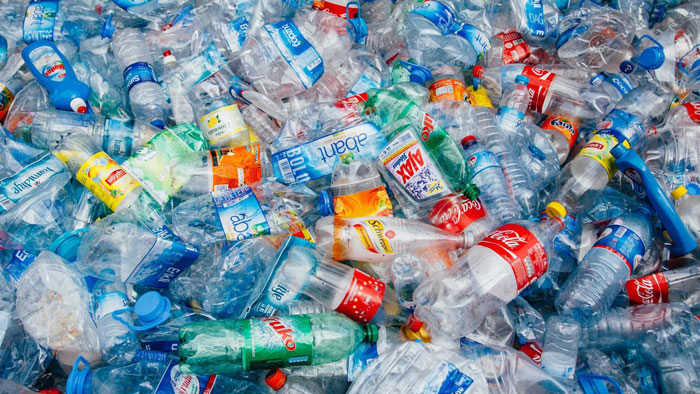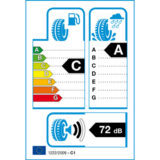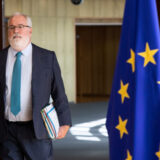
European Parliament and EU Council reach provisional agreement to ban single-use plastics in EU
The European Parliament and the Council of the European Union have reached a provisional political agreement on the ambitious new measures proposed by the EU Commission to tackle marine litter at its source, targeting 10 plastic products, as well as abandoned fishing gear.
Single-use plastic productsmitive and their implementation should give priority to waste prevention or to the transition to re-usable products rather than to other single-use alternatives.
The following products will be banned in the EU:
- Plastic cutlery (forks, knives, spoons and chopsticks)
- Plastic plates
- Plastic straws
- Food containers made of expanded polystyrene, such as fast food boxes, with or without a cover, used to contain food that is intended for immediate consumption either on-the-spot or take-away, and that is ready to be consumed without any further preparation, like cooking, boiling or heating
- Beverage containers made of expanded polystyrene
- Cups for beverages made of expanded polystyrene
- Products made from oxo-degradable plastic: this term refers to plastic materials which contain additives that promote oxidation of that plastic into micro-fragments under aerobic conditions. This type of plastic contributes to microplastic pollution in the environment, is not compostable and negatively affects the recycling of conventional plastic.
- Cotton bud sticks made of plastic
In addition, member states will take the necessary measures to achieve a measurable quantitative reduction in the consumption of the following products:
- Food containers made of plastic, such as fast food boxes, with or without a cover, used to contain food that is intended for immediate consumption either on-the-spot or take-away, and that is ready to be consumed without any further preparation, like cooking, boiling or heating.
- Plastic cups for beverages, including their covers and lids
There will be a binding target of at least 25% of recycled plastic for PET beverage bottles from 2025 onwards, calculated as an average for the member state.
In 2030 all plastic bottles will have to respect a target of at least 30% of recycled content.
The agreement on 19 December is based on the single-use plastics proposal presented in May by the Commission as part of the world’s first comprehensive plastics strategy, adopted earlier this year. The new rules contribute to a broader effort of turning Europe into a more sustainable, circular economy, reflected in the Circular Economy Action Plan adopted in December 2015.
The provisional agreement must be formally approved by the European Parliament and the Council. Following its approval, the new Directive will be published in the EU’s Official Journal and the Member States will have to transpose it after two years.
“Europeans are conscious that plastic waste is an enormous problem and the EU as a whole has shown true courage in addressing it, making us the global leader in tackling plastic marine litter. Equally important is, that with the solutions agreed upon today, we are also driving a new circular business model and showing the way forward to putting our economy on a more sustainable path,” said First Vice-President Frans Timmermans, responsible for sustainable development.
Different measures for different products
The new EU directive on single-use plastics will be the most ambitious legal instrument at global level addressing marine litter. It envisages different measures to apply to different product categories.
This initiative delivers on the commitment made in the European Plastics Strategy to tackle wasteful and damaging plastic litter through legislative action. The measures proposed will contribute to Europe’s transition towards a Circular Economy, and to reaching the United Nations Sustainable Development Goals and the EU’s climate commitments and industrial policy objectives.
In December 2015 the Juncker Commission adopted an ambitious new Circular Economy Package to help European businesses and consumers to make the transition to a stronger and more circular economy where resources are used in a more sustainable way.
Earlier this month the European Commission launched also the “Circular Plastics Alliance,” an alliance of key industry stakeholders covering the full plastics value chain as part of its efforts to reduce plastics littering, increase the share of recycled plastics and stimulate market innovation. The alliance aims to improve the economics and quality of plastics recycling in Europe, and will in particular strengthen the match between supply and demand for recycled plastics which is identified as the main obstacle to a well-functioning EU market of recycled plastics.
.gif)












